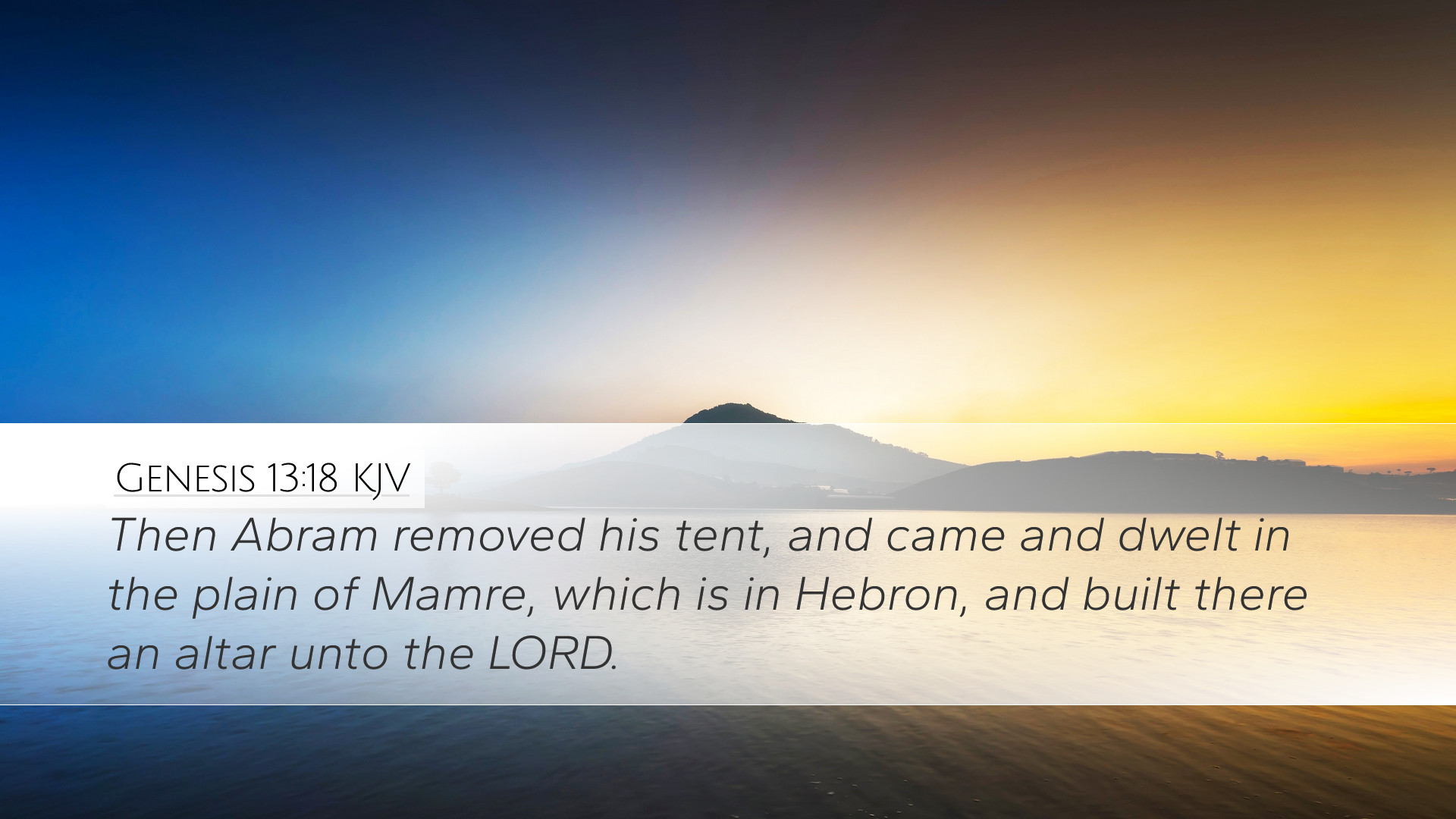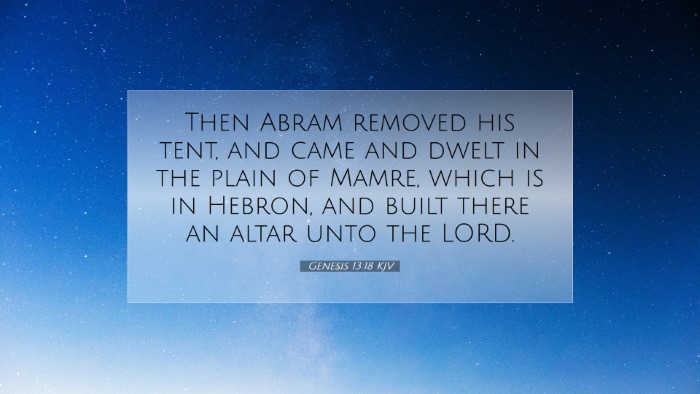Commentary on Genesis 13:18
Genesis 13:18 states, "Then Abram moved his tent and went and dwelt by the terebinth trees of Mamre, which are in Hebron, and built an altar there to the Lord." This verse is pivotal as it marks a significant moment in Abram's journey of faith.
Contextual Background
This passage occurs after Abram and Lot separate due to strife between their herdsmen. The previous verses depict the tensions that arise from prosperity and the necessity of maintaining peace within familial relationships. By choosing to dwell near Mamre, Abram demonstrates a wise decision grounded in both strategic and spiritual considerations.
The Significance of Mamre
According to Matthew Henry, the location of Mamre is significant due to its rich historical and spiritual context. Mamre, identified as a place of oak trees, symbolizes strength and stability. The terebinth trees are notable, as they often serve as landmarks and sites of worship in ancient cultures.
The Act of Building an Altar
Abram's act of building an altar is particularly significant for several reasons:
- Worship and Acknowledgment: Adam Clarke emphasizes that the altar signifies Abram's acknowledgment of God's sovereignty. By building an altar, Abram recognizes God's providence in his life and the call to higher worship.
- Continuity of Faith: Albert Barnes explains that this act of worship reiterates the continuity of Abram's faith. In a land filled with idolatrous practices, Abram's altar stands as a beacon of faithfulness to the living God.
- Public Declaration: The altar serves as a public declaration of Abram's devotion. It signifies that he is not ashamed of his God and acknowledges His presence in his life and journey.
Theological Implications
From a theological standpoint, Abram's journey to Mamre signifies a deeper relationship with God.
- Faith in Action: The narrative illustrates that faith is not a passive belief but involves action and commitment. Abram's physical relocation mirrors a spiritual journey toward deeper trust in God.
- God’s Covenant Promises: Building the altar serves as a reminder of the covenant promises God made to Abram. It reinforces the idea that God's promises are often realized in acts of worship and obedience.
- Community and Covenant: The act of setting up an altar not only pertains to Abram but also sets a precedent in establishing a worshiping community. It emphasizes the importance of community in faith.
The Role of Place in Faith
The specific mention of Hebron highlights the significance of locale in the biblical narrative. Matthew Henry notes that the names and places in Scripture often bear a rich connection to God's plan. Hebron, linked to the root word for "friend," reminds readers of Abram's close relationship with God.
Conclusion
In summation, Genesis 13:18 encapsulates essential themes of worship, obedience, and the establishment of a covenant community. It serves as a powerful reminder for modern believers about the importance of placing God at the center of our lives through acts of worship and living out our faith daily, much like Abram did in a land fraught with challenges.


